COVID-19: What life will be like when we start socialising again
From new social distancing rules on public transport to how clubs, restaurants and even cinemas will now operate. Here’s a guide to the proposed changes to be put in place once COVID-19 restrictions are lifted across the state. INTERACTIVE: THE NEW NORMAL
NSW Coronavirus News
Don't miss out on the headlines from NSW Coronavirus News. Followed categories will be added to My News.
Buffets will be banned as will plastic menus, couches, communal cutlery and the ubiquitous pub food “buzzer”, while sitting next to mates at the cinema or the pokies will no longer be allowed as NSW prepares to return to business.
Sports will slowly return to suburban ovals, but spectators will have to stand apart while anyone wanting to enter a club will have to pass a temperature check under proposed COVID-19 operational models set to be put to the state government.
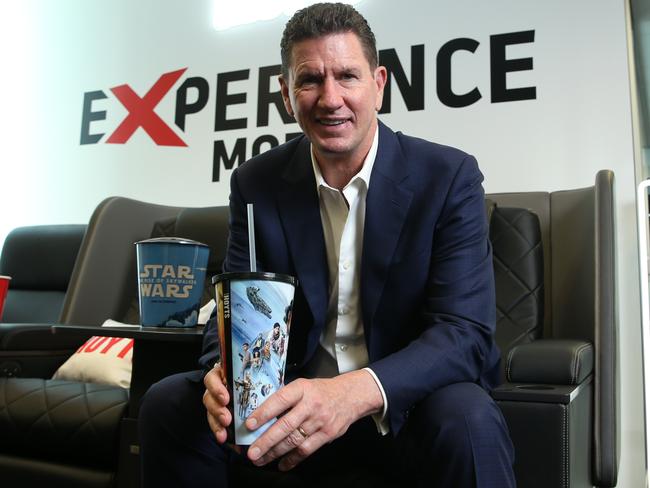
With a return to normal life unlikely without the emergence of a vaccine or the virus “burning out”, industry leaders have been holding talks with state government ministers about how they believe they could operate should there be an easing of restrictions.
MORE FROM LINDA SILMALIS:
NSW’s strict rules have spared 700 lives, leaked data reveals
Why Harry and Meghan said no to naming RFS tanker ‘Archie’
It can be revealed Hoyts is working towards a July opening with social distancing measures to include checkerboard seating to keep moviegoers separated, temperature checks of staff, stepped up cleaning of theatres and online ticket payments.
Hoyts chief executive officer Damian Keogh told The Sunday Telegraph the company was hoping to reopen its cinemas in July with the organisation to implement a “20 point checklist” should it be given the green light.
“Entertaining and socialising is kind of the key to our being, but the scary thing with COVID-19 is that there is no game book for what we are going through,” he said.
“What will be normality? The longer term is the more scary thing. We’ve ordered thermometer guns to be able to check staff and sanitiser dispensers.
“We want to get back to normal as soon as possible. We’ve done a lot of preparation and we are in contact with the major cinema chains across the US and Europe. I hope they find a vaccine or it dies out.”
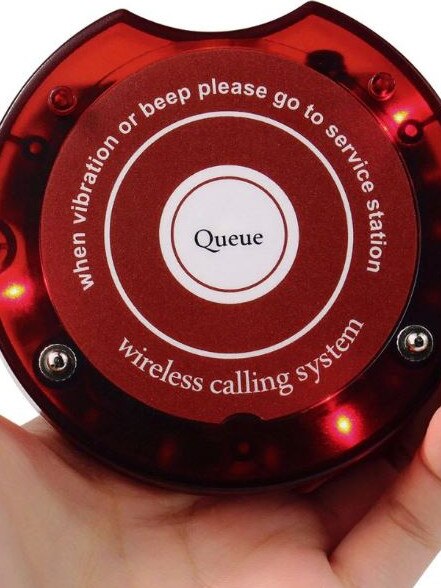
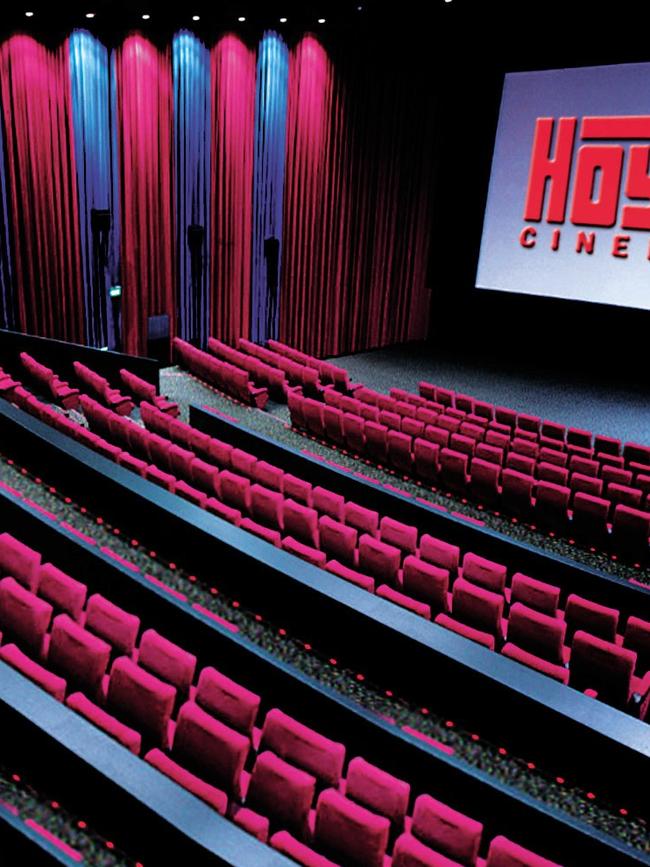
When pubs open, bistros and dining rooms will have fewer tables and chairs with a 50 per cent capacity limit introduced while only every second gaming machine will be operational – unless an acceptable distance between each can be achieved, according to ideas floated with the state government.
The pub food buzzer – usually handled by hundreds of patrons – will be banned, as will the bar water jug and other items that are touched repeatedly.
Australian Hotels Association NSW chief executive officer John Whelan said hoteliers understood social distancing was here to stay.
“We absolutely understand there is a new world order that we are moving to, that it’s not just about flicking the switch and filling the pubs back up again,” he said.
“They are thinking about anything that people touch – water jars at the end of the bar, those laminated menus, the buzzer.
“Live music is a real difficult one. Possibly seated. A lot of hotels are giving real consideration to everything. They all accept social distancing is here to stay for a while.”
ClubsNSW is having its plan to reopen reviewed by an infectious diseases expert before it is put to the state government.
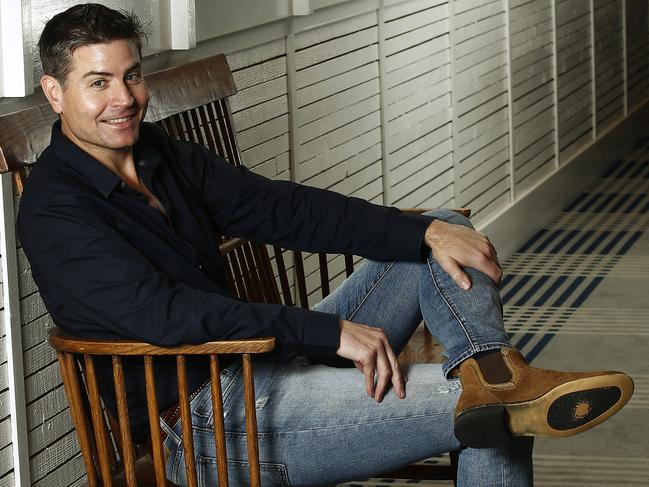
It can be revealed the plan involves mandatory temperature checks of all patrons before entering, the removal of couches and forcing members and non-members to sign in and out to allow for contact tracing in the event of an infection.
ClubsNSW CEO Josh Landis said it’s plan outlined how clubs could operate again while providing patrons with confidence about their health and safety.
“The sad fact is, some clubs won’t survive the current shutdown and the longer it goes on, the more clubs we’re likely to lose,” he said.
“Obviously clubs are keen to re-open but only when the government and health authorities say it’s safe to do so.
“To that end, we’ve put together a proposal, reviewed by an eminent infectious diseases expert, which outlines how clubs can operate again soon, providing people with maximum confidence about their health and safety.
“The size of our venues allows us to implement extreme social distancing measures and our sign-in requirements mean we can keep track of who’s been in the venue.
Stu Laundy’s Laundy Hotels Group has more than 20 pubs currently in a holding pattern during the COVID-19 shut down along with several bottle shops.
He says he is in regular communication with the Australian Hotels Association on a possible easing of trading restrictions but says he will ‘so anything’ to speed up the process.
“Whatever it takes,” Mr Laundy told The Sunday Telegraph.
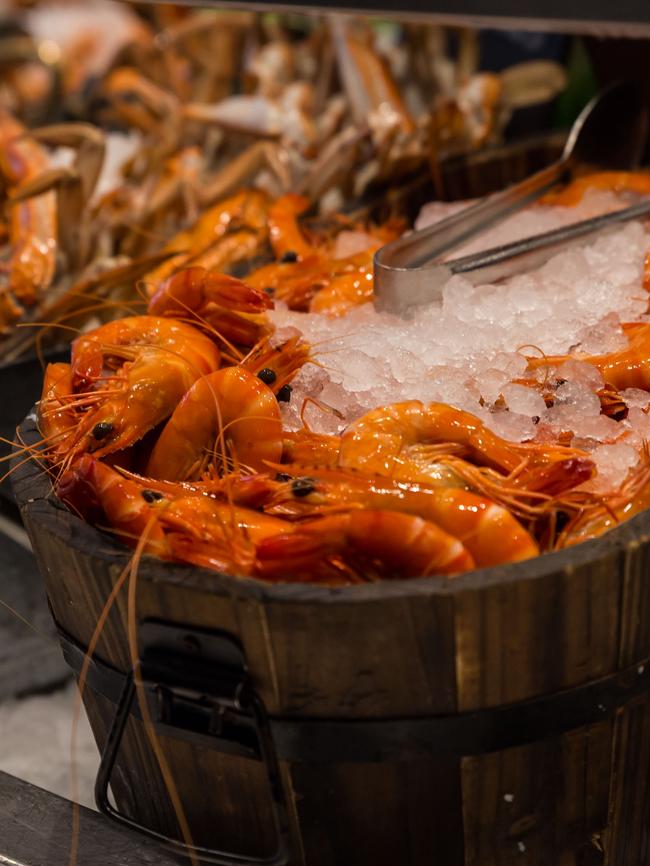

“We are looking at things like spacing out the chairs and furniture.
“There’s been some talk of only turning on every fourth poker machine.
“I’d be happy to hire extra security to monitor healthy safety. anything to be honest.
“We just want to see the tills turning over again.”
A post-coronavirus world could see some major shifts for some restaurant owners with one, Catalina owner Judy McMahon, considering a complete change of business model following a surprisingly successful takeaway and delivery spin-off.
The high-end Rose Bay fine diner, which is also selling alcohol takeaways, may continue offering at-home meals even with restrictions eased.
“At this point anything is possible. The response to the takeaways has been incredible and people ask us all the time; ‘Will you make this permanent?’
“And I think it’s definitely an option in some form.”
Tourism Accommodation Australia chief executive officer Michael Johnson said the virus looked to have killed the buffet, with guests also more likely to choose in-room dining once hotels reopened.
The industry had been devastated by the pandemic, with the loss of both international visitors and cruise line passengers although the domestic market could make up some of the losses as Australians took to travelling locally once isolation rules were eased.
Measures to be implemented include COVID-19 refresher courses for staff, enhanced room cleaning with a “second going over” and sanitiser at lift entrances.
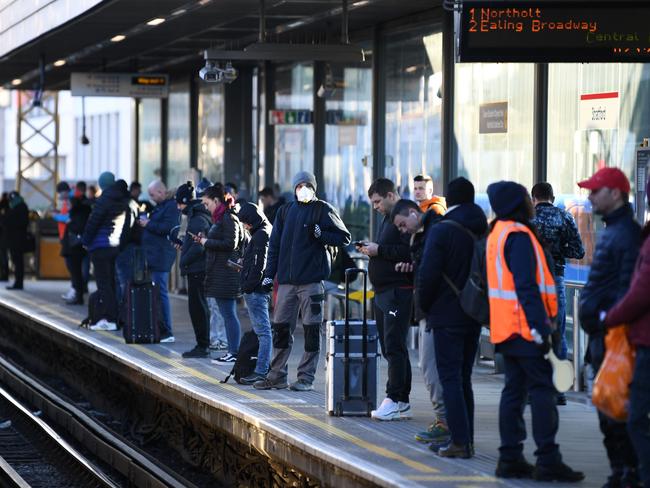
“I think we can say that hotel buffets just won’t be acceptable,” Mr Johnson said.
“The famous seafood buffets in hotels that are so well patronised will certainly be difficult in these moments. Whether those buffets may be able to operate with staff serving as opposed to the days when you pick things up yourself, we’ll see, but I do think there will be a lot more in-room dining. People won’t be as keen to eat in the restaurant.
“It will be a very slow road to recovery for a lot of these places. But Australians love to travel so we are hopeful more will look to heading out and exploring locally.”
In the public transport sector, workplaces will be encouraged to adopt staggered working hours to avoid peak hour crushes, or continue a work-from-home model.
Commuters themselves will have access to apps to determine how many people may be on a train or platform at any one time, while a ‘one passenger per every second seat’ rule and a ban on standing may be implemented permanently on buses.
As for community sport, clubs are being encouraged to adopt social distancing measures to comply with public gathering rules of no more than two people.
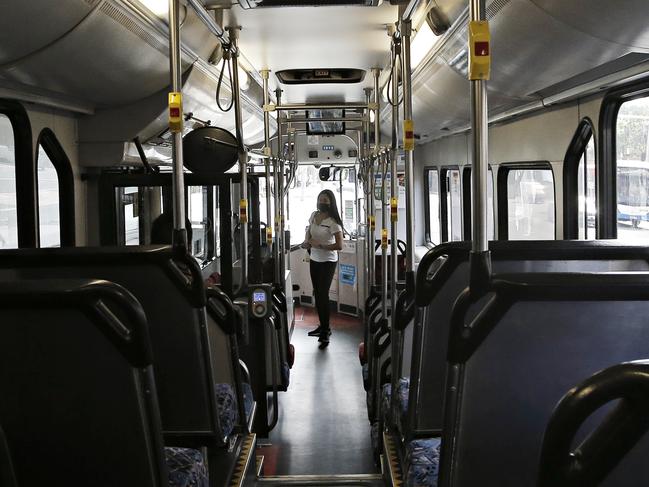
TAFE officials are looking at how students could return for face-to-face teaching with reduced class sizes, splitting lessons between practical and theoretical, changing the physical layout of classrooms and “mapping personal space boundaries similar to what we are seeing in supermarkets,” said Tertiary Education Minister Geoff Lee.
With international border closures interrupting food imports, what NSW residents can expect to find on the shelves may also change.
SunRice chief executive officer Rob Gordon said panic-buying, drought and restrictive water policies that hampered the planting of new crops meant supermarkets could be out of Australian rice by the end of this year.


The industry is seeking a review of water allocations to become viable within the existing environment.
“What we have been saying to government is these are unusual circumstances and we will run out of Australian rice before the calendar year,” Mr Gordon said.
With visit to jails banned, Corrective Services NSW has been trialling AVL studio sessions whereby family members can speak to prisoners via a system usually used for court appearances.
“When it is considered safe to do so, we will reinstate face-to-face visits and are looking at how we can reintroduce this in a safe way across the state, while maintaining social distance,” a department spokeswoman said.
“We’re also exploring the option of continuing to use the AVL technology for family visits, so that we can minimise the number of people entering our facilities.”
